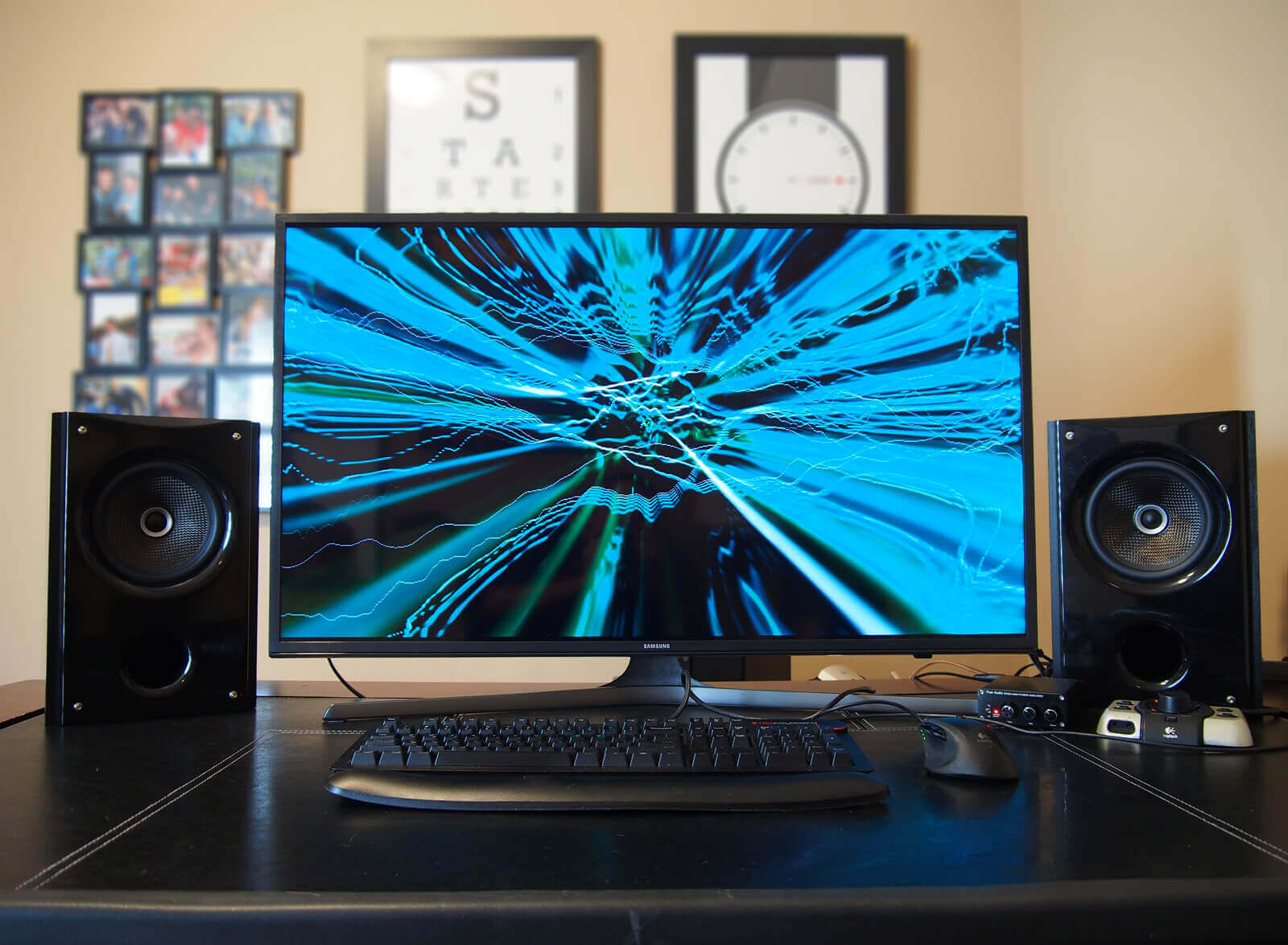Working From Home Effectively: Dos and Don’ts
In the span of just a few weeks, daily life as we know it has taken a 180-degree turn due to the Covid-19 outbreak and resulting mitigation efforts. Local and state governments across the world have taken unprecedented steps to slow the spread of the virus through stay-at-home orders, mandatory or otherwise.
At any other period in time, such drastic measures would have certainly crushed the economy in all of its facets but fortunately, technology is on our side. Thanks to computers and the Internet, millions of people can effectively do their job remotely from home while complying with social distancing measures. Naturally, this cannot be said of every single job, but many different industries would be facing more dire consequences if not for the technology tools at our disposal.
That’s the scenario that plenty of people find themselves in today, many being asked to work from home for the first time in their lives. At TechSpot, all of our writers have been doing this for over a decade. If you’ve never worked from home, let alone full-time, the prospect may seem daunting or outright insurmountable.
We want to help with a few helpful tips, not only of what you can do, but what you probably shouldn’t. Our hope is that we can contribute with ideas that will get you than ready to tackle the challenge.
Do: Set up a dedicated workspace if at all possible. I’ve seen countless photos of people using their kitchen table as a makeshift office. For many families, the kitchen is a central meeting point and one that is visited several times per day. Odds are, you aren’t going to be very productive trying to work around all those distractions.
A dedicated home office is obviously the ideal choice but in lieu of that, consider converting a spare bedroom or the unused space above a garage into a temporary office. Even carving out a spot in your bedroom would be better than the kitchen. The kitchen or living room will work, but only settle on these areas as a last resort.
Don’t: Justify purchasing a new computer or expensive furniture if it isn’t absolutely necessary. With the world in turmoil right now, even those with the most stable of jobs may be finding it difficult to be content. Instead, think in terms of what your job actually requires you to do. For example, if you write marketing copy for a living, you don’t need the latest Core i9 or Threadripper CPU to get the job done.
What’s more, a basic folding table is more than adequate for most improvised home offices. Remember, in most cases, you are creating a temporary solution, not your forever office. A decent office chair is the one exception we’d consider here, or if you prefer, a standing desk. A kitchen chair or old patio furniture likely isn’t going to cut it for very long.

Do: Consider repurposing old hardware or breathing new life into a tired system with a minimal investment. My work computer is running a mid-range processor that launched in early 2011 yet still feels zippy enough to stick around for at least another few years. If you have an older computer and suddenly find yourself having to work from home, try reformatting it and starting fresh with only the software you need to complete your duties. You may be surprised at how speedy a dated system feels without a clogged up registry. And if it truly needs a kick in the pants, an affordable solid state drive or some extra RAM may do the trick for not much money.
Don’t: Bother getting “dressed to impress.” Seriously, if your job doesn’t require you to conduct video calls or otherwise be seen by others, there’s absolutely no point in changing from your pajamas into work clothes in the morning. In all my years of working from home (my entire professional career), never once have I gotten dressed to go sit behind a keyboard. Why be less comfortable and have to do extra laundry?

Do: Set boundaries, both with yourself and your family. It’s imperative to be able to eliminate distractions during business hours and maintain a routine. When working at home, this can mean being mindful about setting a schedule for yourself and sticking to it. Be disciplined. With no supervision, who is to stop you from flipping on the TV or tackling a load of laundry while on the clock? Yourself, that’s who. And if you’ve got family members under the same roof, make sure they know that you’re unavailable and not to be bothered during work hours. If it comes down to it, get some ear plugs to keep the background noise to a minimum or use headphones to drown out the chaos.
Do: Invest in accessories that truly make your job easier or more comfortable. I write for a living so having a quality keyboard is high on my list of priorities. A solid mouse that’s comfortable to use for extended periods of time is also worth it, and where would I be without my trusty 3M gel wrist rest? I tend to prefer wired accessories over wireless variants as it is one less thing to go wrong but that’s largely a personal preference. I’ve also discovered the value in the abundance of screen real estate that a large display affords but unless you are building a long-term solution, you could save the money and skip this addition. As you can tell, my work from home environment is desktop-based, but the same principles apply with a laptop or even tablet. A trusty keyboard is a must.

Don’t: Believe the myth that you need the fastest broadband connection your ISP offers in order to work from home. I personally fell victim to this line of thinking for years, rationalizing my need for a top-tier connection. When I finally wised up, I started saving a lot of money and honestly, I couldn’t even tell a difference between the fastest connection and the mid-range connection for most tasks.
Do: Take pride in your workspace by keeping it tidy. Each day after work, I force myself to clean my desk – not deep clean, mind you, but I put my sunglasses up, hang my hat on the cat tree, put the mail in my desk drawer, toss any soda cans, that sort of thing. It only takes a minute or two but it makes starting the next day that much more enjoyable. “Do something today that your future self will thank you for.”

Don’t: Slack off or treat this as a vacation. Remember, your boss is still likely monitoring your performance on the job (and arguably even more so right now). Go above and beyond. Stand out from the crowd. If there are job reductions in the near future, perhaps you’ll survive the cut over a co-worker because you worked harder and showed initiative during this period. Who knows, it may even lead to more work opportunities down the road once things get back to normal.
Do: Expect an adjustment period. I’ve said for years to anyone that would listen that working from home isn’t all it is cracked up to be. Just this week, I was talking with someone who said working from home was “surprisingly tough.” Another friend commented that he has struggled with separating work from daily tasks since being sent home. It’ll get easier over time as you adjust but don’t expect it to be a cake walk from the get go.
Photos credit: Ivan Kruk, Jay Wennington, Andrey_Popov, Dario Lo Presti
- Ad-free TechSpot experience while supporting our work
- Our promise: All reader contributions will go toward funding more content
- That means: More tech features, more benchmarks and analysis